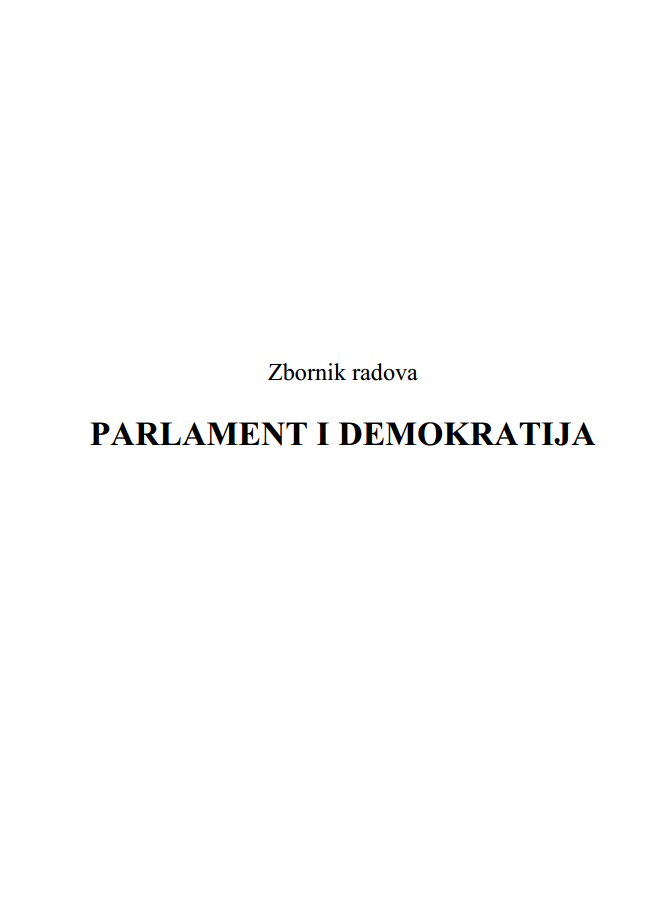
We kindly inform you that, as long as the subject affiliation of our 300.000+ articles is in progress, you might get unsufficient or no results on your third level or second level search. In this case, please broaden your search criteria.

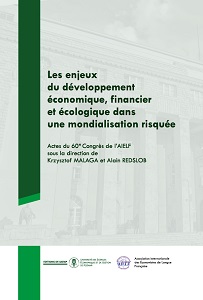
In the European Union Member States taxes on consumption represent an important part of budgetary revenue. According to the statistical data collected by Eurostat, nearly 17,6% of this revenue (7,1% of GDP) comes from the value added tax. The efficiency of this tax varies from one country to the other and is influenced by the macroeconomic, institutional and legal factors. Among the latest there are regulations concerning the tax expenditures. Multiple economists argue that tax expenditures are one of the main factors undermining VAT performance in certain European Union Member States. In France and in Poland VAT is the most significant source of financing for the State, nevertheless VAT efficiency ratio in these two countries is below the European Union average. The objective of this article is to evaluate the effect of VAT expenditures on the VAT revenue in France and in Poland. The first part of this article provides a general overview of the definitions of VAT expenditures and the methods of their estimation. The second compares indicators used to evaluate VAT efficiency in France and in Poland. Finally the article concludes by offering an analysis of costs and the structure of tax expenditures in these countries.
More...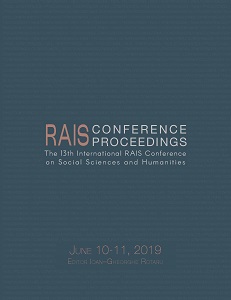
This article focuses on the legal provisions governing the institution of the Romanian tax executor and aims to identify its legal status, by presenting its role and tasks in the tax execution procedure, and at the same time presents comparative aspects between the tax executor and the court executor. So, the forced execution of fiscal obligations is a way of extinguishing them. Furthermore, according to the special provisions existing in the field of taxation, when the taxpayers have not fulfilled their fiscal obligations at the date when they became due, the right of the state to pass to forced execution of the fiscal obligations is born on this date. And due to the enforceability of the title of the tax claim, the forced execution procedure carried out by the tax authorities is not preceded by another judicial procedure. Moreover, the tax authorities fulfill the forced execution procedure through tax executors, thus, the importance of its legal status is more than relevant compared to the “common law” executor in the Romanian legal system, which is the court executor.
More...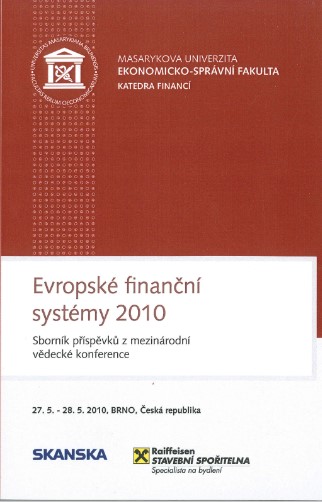
Yearly, the end of March is connected with the date, when it is necessary to make returns to the individual income tax and to pay the tax pro the last period of taxation. The paper is focused on the presentation of information that is essential for the declaration of taxes and forthe tax calculation. The presented paper is enriched by the practical demonstration of this problem, namely individual income tax calculation pro the last period of taxation, shown at the example from the business praxis in SR.
More...
Our text focuses on the possible application of Value added tax to financial services and its economic consequences. To be able to apply VAT in this respect, several factors have to be taken into account (disunity of international legislation, problematic determination of tax base etc.). We are describing such issues and subsequently, we are trying to simulate different scenarios that could arise after mentioned VAT implementation.
More...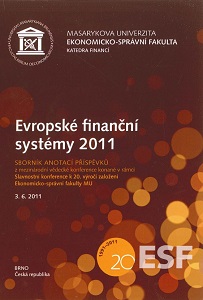
This paper deals with the impact of amendment to Act No. 235/2004 Coll., The Value Added Tax from the 1st of April 2011. This amendment is relatively new for a lot of companies andso far they don’t know all the changes and the results related to the amendment of Act.
More...
To allow nonprofit organization effectively carry out its major purpose for which it was founded, it is a necessary to correctly set a financial management of the whole organization. The basic tool of financial management is its budget. Appropriately selected and properly assembled type of budget shows the organization whether it has enough financial resources for upcoming projects.
More...
Processes of harmonization of direct and indirect taxes have been running over few decades in the EU. The problems of tax harmonization within European union resulted from the internal conflict of tax harmonization and competition on one hand, and on the second hand from the needs of tax harmonization in the EU and the right of national tax sovereignty of member states. Solutions of these problems have been very urgent especially in the present time of fiscal, financial and economic crisis in the world and Europe.
More...
The retrofit issues of progressive taxation in the Czech republic has recently been frequently discussed topic. The reason is simple, and that the question of form of taxation of personal income tax affects every tax payer in this country. The goal of this articleis an analysis of possible retrofit of progressive taxation.
More...
This article deals about influence of taxation on the consumption of propellants. Development of petrol price is highly discussed topic not just currently, but even in the long term. The final petrol price does not contain only price of the oil in the world market, but also consumption tax and VAT. Article is mainly focused on the role of the tax on the price and consequently on the consumption of propellants.
More...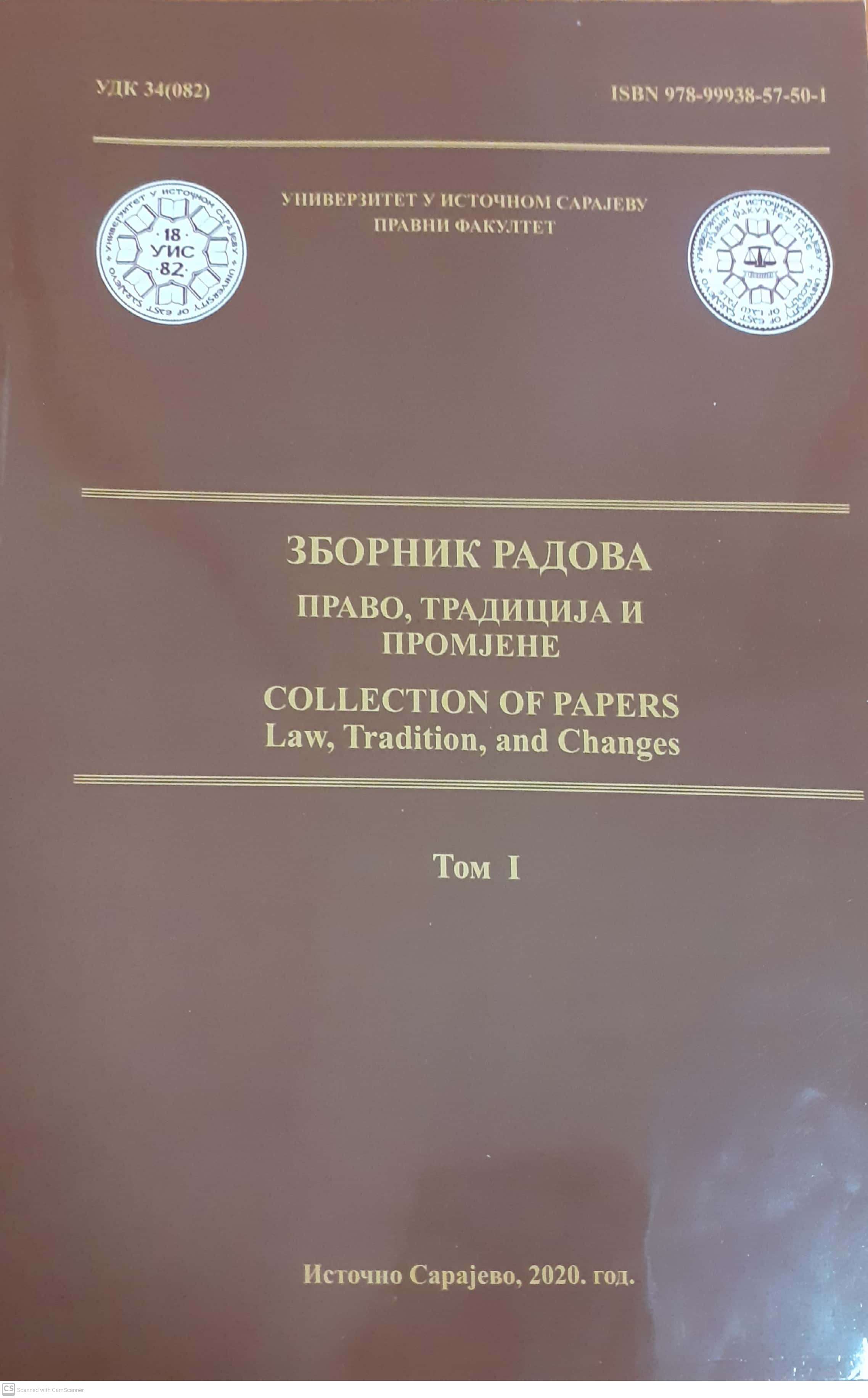
The relation between tax assessment and determination by means of administrative tax act tax return (self-assessment), on the one hand, and commencement of tax procedure as a special administrative procedure, on the other hand, is important for a number of procedural and material reasons. Commencement of tax procedure is defined differently in legal theory and legal practice. The author analyses theoretical views and positive tax law and tax practice in The Republic of Srpska, and offers comments and conclusions on commencement of tax procedure. He argues that tax returns cannot be accepted as administrative acts, and decries relevant paragraphs of Law on Tax Procedure of Republic of Srpska for thereof lack of consistence with basic principles of positive administrative law. The exact moment of tax procedure commencement, legal definition and nature of tax returns, as well as actions of participants in the tax proceedings should be legally redefined in accordance with general administrative legal principles.
More...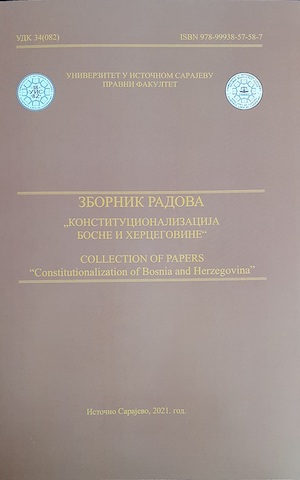
Relations and correlations between existing legal tax systems in Bosnia and Herzegovina originate from the distribution of constitutional competences in B&H and numerous unresolved legal dilemmas concerning criteria for the distribution of tax competences. The author based this research on hypotheses put forward in the Project “Constitutionalization of Bosnia and Herzegovina”, firstly the hypothesis that numerous revisions of the B&H Constitution and redistribution and transfer of constitutional competences between, on the one hand, entities Republic of Srpska and Federation of Bosnia and Herzegovina, and B&H on the other, have not changed the legal nature of the entities. Furthermore, previously tested hypothesis on existence of four tax systems in B&H, three of which are direct taxation systems and one indirect taxation system, is regarded as the second hypothesis in the article. Third hypothesis refers to present implementation of legal norms on competence distribution, which proves to be contrary to the B&H Constitution. That includes present approach to conclusion and implementation of treaties for the avoidance of double taxation, as well as enactment of laws that spell out taxation of transactions of rights in rem over immovable property, without permission from the Governing Board of Indirect Taxation Authority in B&H. Author concludes that various legal uncertainties date back to the time of constitution of Brčko District Tax System and Indirect Taxation System. Conducted analysis supports these findings.
More...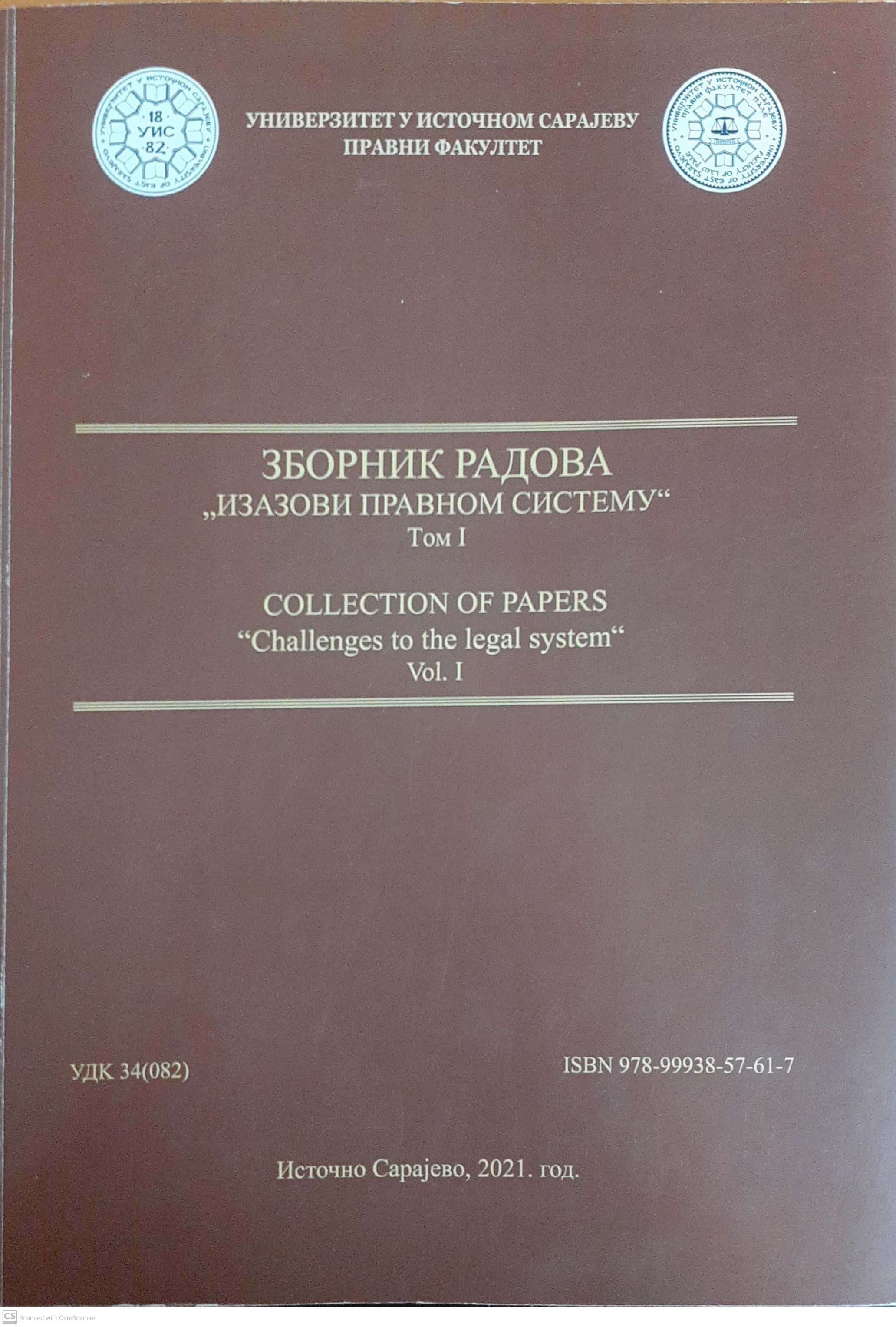
Secondary and secondary to secondary tax liability in Republic of Srpska’s tax law is not word play, but literal essence of newly introduced legal construct which, as the author assumes, may be particularly troublesome to implement. The new Law on Tax Procedure, which entered into force in mid august 2020, provides the secondary tax liability that includes not only due and unsettled liabilities of other taxpayer, but also other’s due and unsettled secondary tax liability. One secondary tax liability may be the legal basis for existence of other secondary tax liability. In this paper, the author gives numerous secondary liability examples, in which potential problems may arise for Tax Authority and parties as well, during the implementation of secondary tax liability law provisions. The author concludes that this legal concept should not have been introduced in this manner, but also supports the legislator’s intention to determine appropriate provisions of law on proceedings, concerning substance over form principle and general and specific anti-abuse rules.
More...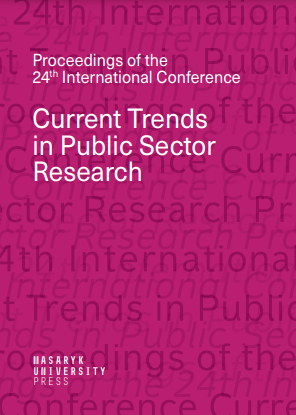
There have been changes in public financial indicators in Turkey after the year of 2000. In this paper, these changes were evaluated together with the budget data. In this context, this paper aims to reveal positive or negative effects of budget data on public financial indicators. The 2008 global financial crisis formed the external direction of the negativity in public financial indicators. In particular, before and after 2008, negative developments have been experienced in public financial indicators except for some years. The 2008 global financial economic crisis had also negative impacts on public financial indicators. Moreover, both general and local elections are a negative factor in public spending discipline in Turkey. Since the local elections, the ruling government has chosen extender budget policies as fiscal policies to win the elections. According to the findings of this study, it was determined that Turkey moved away from the Maastricht criteria after 2008, which stemmed from negative developments in budget data.
More...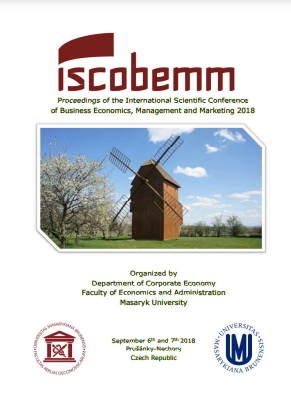
General purpose financial statements play an important role as an indispensable source of information when making business decisions by stakeholders, in particular by management. The article presents the results of a survey conducted in the first quarters of 2017 and 2018 among Polish tax advisers providing legal services in business units classified as large business entities. The purpose of the article is to indicate the scope of financial and non-financial information used by specific stakeholders - tax advisers in the decision making process, in particular tax decisions. The research methods used in the article are the analysis of national and international legal regulations concerning financial statements and survey research, carried out among users of financial reports - financial advisers providing legal and tax services for companies.
More...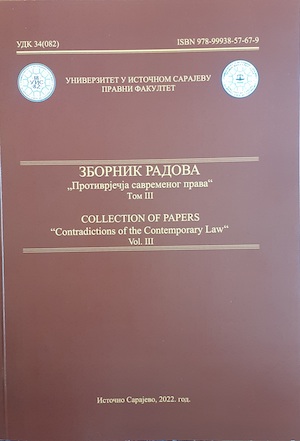
Greed and egoism are phenomena immanent to any society. It could also be said that since the early ages, there has also been a need to claim as much money, power and glory as possible. On the other hand, or side by side, is the need to reduce that amount of money, i.e. wealth, as small or less as possible through different types of taxation.It could be even said that greed, money and selfish own goals have become a top priority in the life and work of most legal and natural persons, especially large multinational companies, and a very wealthy and/or politically powerful citizens around the world.In addition, to the last aforementioned activities of legal and natural persons focused primarily on increasing their own power and wealth, and on the other hand focused on paying as little tax as possible or not paying taxes at all, tax competition among different tax jurisdictions happened. States, i.e. jurisdictions have embarked on a strong struggle to attract foreign capital by applying various measures, primarily by introducing various tax reliefs, tax exemptions, introducing simulative tax rates or non-taxation certain incomes at all, etc. Such practices, both by legal and natural persons, as well as by the states themselves, have led to the need to find a unique, global solution that would minimize or prevent the most pronounced tax evasion and tax avoidance, i.e. eliminate the negative effects of harmful tax competition.As one of the path in the light of solving the problems and developed jointly by the OECD and the Council of Europe in 1988 and amended by Protocol in 2010 was the Multilateral Convention on Mutual Administrative Assistance in Tax Matters. This Convention is the most comprehensive multilateral instrument available for all forms of tax co-operation to tackle tax evasion and avoidance that is priority in the whole world, i.e. priority in almost every country worldwide. So, why do we (world) need to have international cooperation and, more above, coordination in the area of taxation? What is the main purpose of this Convention? Why does it matters? What is Convention’s main goal and achievement so far? What benefits (and losses) can be expected by Bosnia and Herzegovina and its citizens from this Multilateral Convention on Mutual Administrative Assistance in Tax Matters Convention? What is the legal framework for the exchange of information in Bosnia and Herzegovina, which is very complex in terms of fiscal competencies and organization?The aim of this paper is to present the legal framework of Bosnia and Herzegovina for the exchange of tax information. Also, in this paper, author will point out the advantages and disadvantages that may occur in Bosnia and Herzegovina within the implementation of this Convention. Finally, the author will point out the need for changes in amendments to tax legislation, so that the Convention in Bosnia and Herzegovina could be applied in the most efficient way.
More...
In a more globalized world, the need for mutual legal assistance is growing, so it is clear why successful implementation of the Open Balkan initiative requires increased cooperation in tax matters between Serbia, Albania and North Macedonia. In this paper the author deals with the possibilities for tax cooperation between these countries under bilateral tax treaties , Convention on Mutual Administrative Assistance in Tax Matters etc. After providing a description of the current legal framework for the cooperation, it will be examined whether the standards of tax cooperation developed by Serbia, Albania and North Macedonia are equivalent to the standards within the European Union, in order to determine whether the lack of appropriate legal framework can serve as a justification for the Member States to restrict the free movement of capital in situations involving Serbia, Albania and North Macedonia. Finally, the author formulates proposals that could improve cooperation in tax matters between these countries. One of these is a signing multilateral convention. Another option is revision of double taxation agreements, especially agreements concluded between Serbia and North Macedonia and Serbia and Albania, in line with updated version of OECD Model Tax Convention, as well as signing social security agreement between Serbia and Albania.
More...
Joint audits from Bosnia and Herzegovina's perspective may impose significant challenges unless domestic fiscal relations are arranged prior to any international arrangements. However, present state of affairs concerning this matter shows surprising lack of respect for constitutional fiscal framework and distribution of powers. If not addressed, this problem may significantly impede future Bosnia and Herzegovina's harmonization of legal bases for joint audits in the Western Balkans region and beyond. Bosnia and Herzegovina consist of the two Entities, the Federation of Bosnia and Herzegovina and the Republic of Srpska, which, along with Brčko District of B&H, all have separate and exclusive responsibilities in the matters of direct taxes, while the institutions of Bosnia and Herzegovina assumed responsibility for indirect taxes. Therefore, the institutions of Bosnia and Herzegovina have no control or higher instance power over tax administrations of the Entities.Furthermore, distinction between direct and indirect taxes in certain cases is not clear, which may result in conflicts of jurisdiction. The author examines how these challenges could be overcome, and suggests that existing internal tax competition and race to the bottom could be facilitated to reconsider Bosnia and Herzegovina's hesitation to support and join certain regional economic and tax initiatives.
More...
The concept of causality, developed by Wiener (1956) and Granger (1996), has been a cornerstone for examining the dynamic relationships between time series. Since the Granger causality relationship helps researchers to formulate a suitable model and obtain better predictions for the variables, it has attracted attention in the literature and the Granger causality test has been employed in many studies. In this study, current methods used in Granger causality tests are included. In this context, in the relevant sections, the regime-dependent causality test proposed by Krolzig (1996), the lag-augmented VAR-based causality test developed by Toda and Yamamoto (1996), the causality test in variance proposed by Hong (2001), the frequency domain test developed by Breitung and Candelon (2006), the asymmetric causality test developed by Hatemi-J (2012), and Fourier Granger causality test proposed by Enders and Jones (2016) are discussed theoretically and empirically. We would like to thank all the chapter authors who contributed to the book.
More...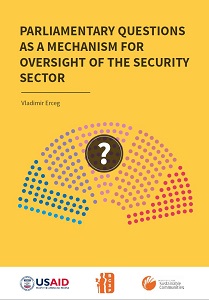
This document highlights the importance of tracking political party pledges to ensure democracy remains functional and accountable. Without such tracking, democracy risks being reduced to mere voter approval during elections, allowing political elites to focus solely on re-election strategies rather than serving the public will. Over time, this undermines democratic values and erodes confidence in institutions. The National Assembly of Serbia, as defined by the Constitution, is the supreme legislative body responsible for ensuring democratic checks and balances. It holds powers to oversee, control, and, if necessary, terminate the mandates of the government and individual ministers. This oversight is particularly crucial in the security sector due to its potential for power concentration, significant budget allocation, and its role in safeguarding citizens' rights. Parliament also serves as a critical intermediary between the public and executive power structures. The National Assembly employs several mechanisms to exercise its oversight role, including parliamentary questions, reports on government functioning, and interpellation. Parliamentary questions are a significant tool for scrutinizing government activities, particularly in the fields of security, defence, and internal affairs. These questions can address corruption and the management of resources within the security sector. An analysis of the eighth and ninth parliamentary terms (2008–2012) of Serbia's National Assembly reveals both the application and limitations of parliamentary questions in overseeing the executive. While this mechanism is widely used, shortcomings in its application were identified, prompting recommendations for improvement. The article underscores the necessity of enhancing these oversight tools to strengthen parliamentary control, especially in addressing corruption and ensuring transparency in the security sector.
More...